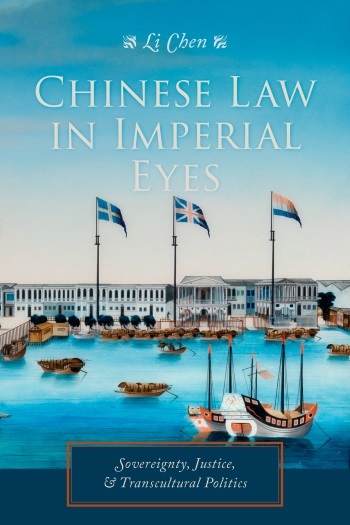How did American schoolchildren, French philosophers, Russian Sinologists, Dutch merchants, and British lawyers imagine China and Chinese law? What happened when agents of presumably dominant Western empires had to endure the humiliations and anxieties of maintaining a profitable but precarious relationship with China? In Chinese Law in Imperial Eyes, Li Chen provides a richly textured analysis of these related issues and their intersection with law, culture, and politics in the eighteenth and nineteenth centuries.
Using a wide array of sources, Chen's study focuses on the power dynamics of Sino-Western relations during the formative century before the First Opium War (1839-1842). He highlights the centrality of law to modern imperial ideology and politics and brings new insight to the origins of comparative Chinese law in the West, the First Opium War, and foreign extraterritoriality in China. The shifting balance of economic and political power formed and transformed knowledge of China and Chinese law in different contact zones. Chen argues that recovering the variegated and contradictory roles of Chinese law in Western "modernization" helps provincialize the subsequent Euro-Americentric discourse of global modernity.
Chen draws attention to important yet underanalyzed sites in which imperial sovereignty, national identity, cultural tradition, or international law and order were defined and restructured. His valuable case studies show how constructed differences between societies were hardened into cultural or racial boundaries and then politicized to rationalize international conflicts and hierarchy.
Publication Type
- Book



